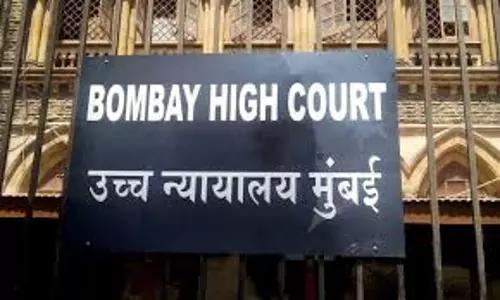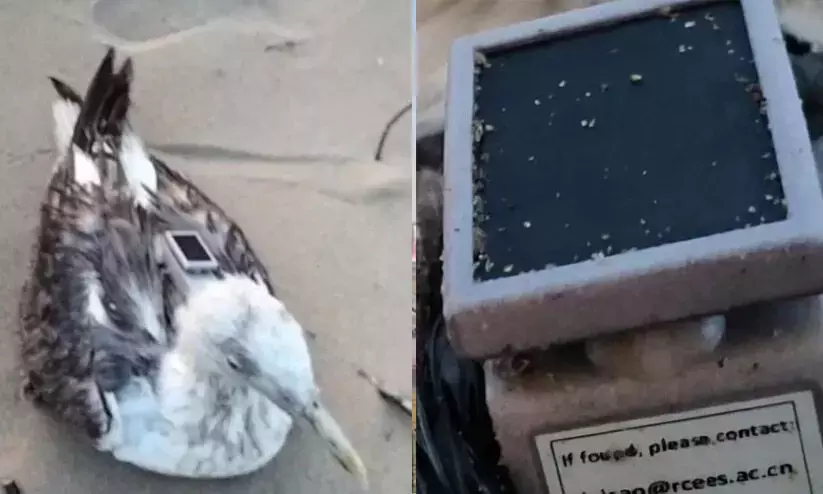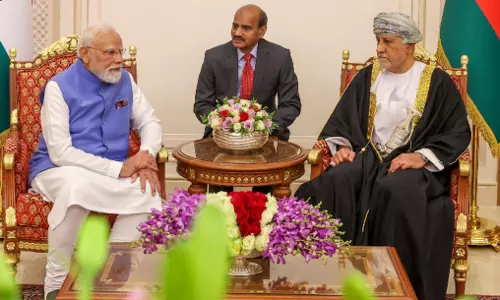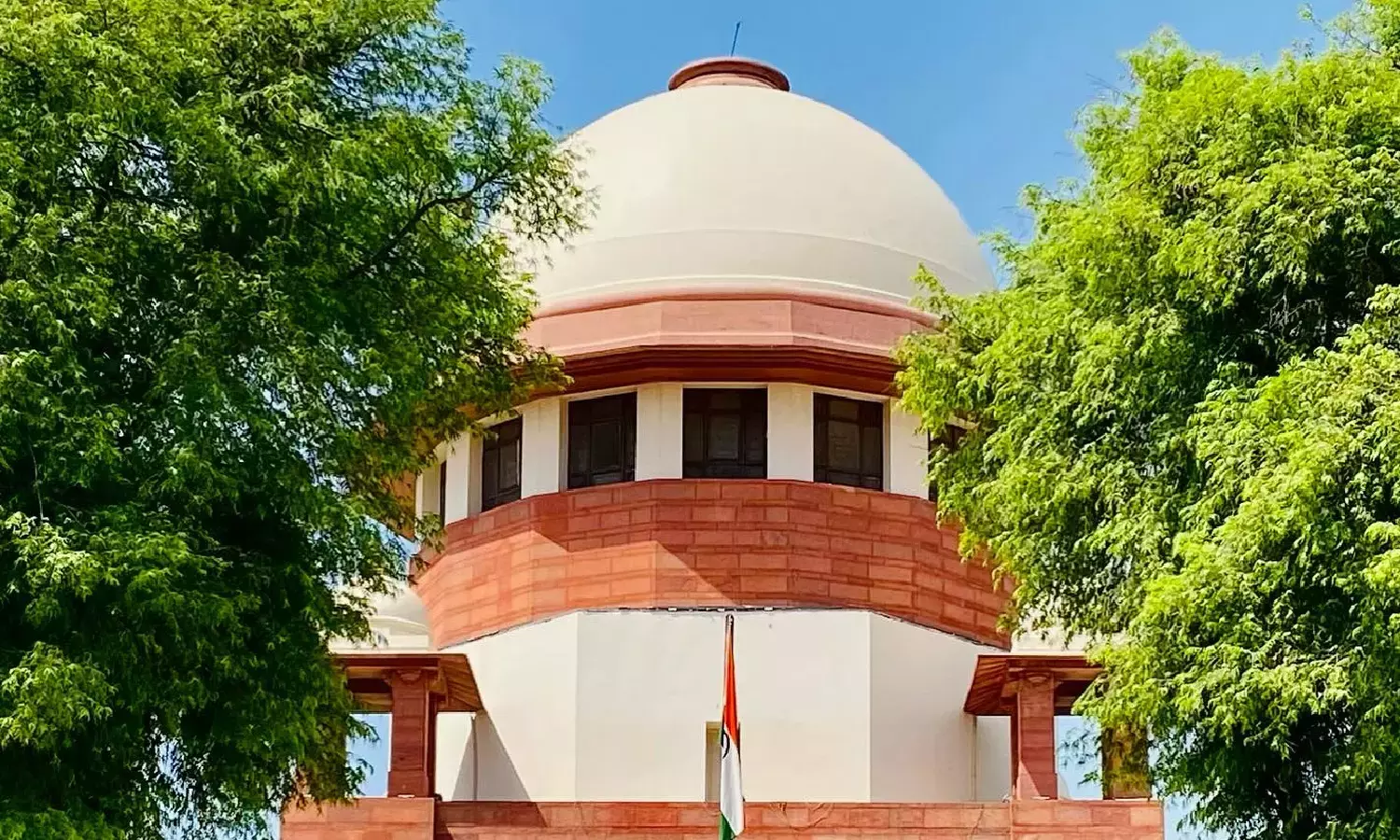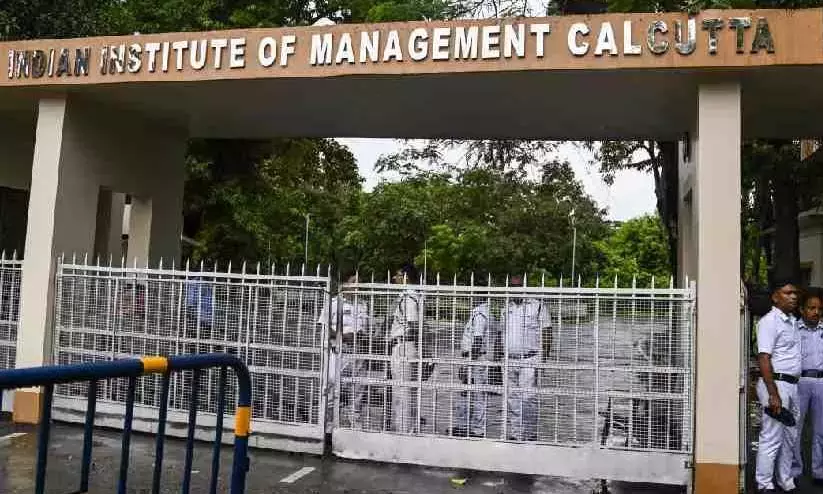
SC notice to Centre, states on Presidential reference over guv’s bill timelines
text_fieldsNew Delhi: The Supreme Court on Tuesday issued notices to the Centre and all state governments after a Presidential reference under Article 143 of the Constitution sought the Court’s opinion on whether timelines can be imposed on Governors to act on Bills, in the absence of a constitutionally mandated time limit.
A five-judge Constitution Bench headed by Chief Justice of India (CJI) D.Y. Chandrachud, and comprising Justices Surya Kant, Vikram Nath, P.S. Narasimha, and Atul S. Chandurkar, took cognisance of the matter titled “In Re: Assent, Withholding or Reservation of Bills by the Governor and the President of India.” The Bench requested the assistance of the Attorney General of India, R. Venkataramani, in adjudicating the reference and listed the matter for further hearing in August.
Solicitor General Tushar Mehta, appearing for the Union government, waived formal notice and said he would represent the Centre. The Court directed that all state governments be served notice through email and through their respective standing counsels. The case will be taken up next Tuesday to facilitate appearances by all states.
During the hearing, senior advocate K.K. Venugopal, representing Kerala, questioned the maintainability of the proceedings. Similarly, senior advocate P. Wilson, appearing for Tamil Nadu, argued that the issues raised had already been settled by the apex court in the Tamil Nadu Bills case. He expressed concern over how the reference could impact Tamil Nadu’s interests. In response, CJI Gavai stated that the matter had broader implications for all states, not just Tamil Nadu, necessitating their participation.
The Presidential reference follows the Supreme Court’s ruling in April this year, when a two-judge Bench invoked Article 142 to resolve a long-standing impasse between the Tamil Nadu government and Governor R.N. Ravi, over delays in granting assent to 10 Bills passed by the state legislature. The Court held the Governor’s inaction as “illegal and arbitrary” and directed that Presidential and gubernatorial assent be given within three months of the Bills being re-passed and presented again by the legislature.
The Court clarified that if no decision is taken within this timeframe, the concerned state may file a writ petition seeking a mandamus against the President. It also declared that the ten Bills in question were deemed to have received assent on the date they were re-submitted to the Governor after reconsideration. Furthermore, the Court ruled that a Governor cannot reserve a Bill for Presidential consideration once it has been returned, re-passed by the legislature, and presented again.
This landmark verdict, seen as bringing Presidential actions under the ambit of judicial review, prompted President Droupadi Murmu to invoke Article 143 and seek the Supreme Court’s advisory opinion.
The Presidential reference asks whether the Governor is bound by the aid and advice of the Council of Ministers when deciding on a Bill under Article 200. It also questions the justiciability of the Governor’s discretion on Bills, given Article 361’s bar on judicial review of gubernatorial actions. Additionally, it raises whether judicial orders can prescribe timelines and procedures for Presidential discretion under Article 201, even in the absence of constitutional provisions specifying such limits.
The Supreme Court’s opinion on these questions, once delivered, could significantly impact the legislative process and the role of constitutional authorities across India.
With IANS inputs




